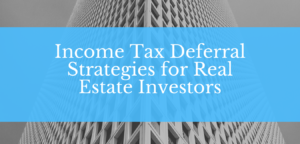Common Trust Fund Questions for Beginners
Are you considering a trust fund? Trust funds are a very useful tool for saving and investing money, but a lot of people aren’t totally sure how to use a trust or even how they work. Trust funds essentially hold assets, like property, a business or money, for the benefit of another person, a group of people or even an organization. There are several common questions regarding trusts, so let’s take a look at some of them.
- How are trust funds structured – a trust fund is a specially created entity that is held in the state where it was formed. In some states you can create perpetual trust funds, which never end, while other states only allow trusts with a termination date.
- What are the reasons to use a trust fund – there are many reasons to set up a trust, but one of the best reasons is that they can protect your assets from creditors. Another reason to use a trust is to protect your assets from untrustworthy family members. You can use a trust to save thousands or even millions of dollars from taxes by donating the trust assets to a charity.
- When is the right time to form a trust – this is a wide-open question because every situation is unique. It depends on your reason for setting up the trust, how much you will be putting into the trust and who will be the beneficiary. It’s best to speak with a professional to determine when the right time is for you.
If you think you are ready to create a trust then come talk with us at GROCO for more ideas and information. One of the biggest factors to consider is how your trust will affect your taxes. We will help you look at all your options and make sure that your trust is set up to be as tax-friendly as possible. Just give us a call at 1-877-CPA-2006, or click here to learn more.
Credit Default Swaps – Impose A Tax On Bogus Insurance
[vc_row][vc_column][vc_column_text] Credit Default Swaps – Impose A Tax On Bogus Insurance By Ron Cohen, CPA, MST Partner Greenstein, Rogoff, Olsen & Co., LLP Proposal to amend the U.S. Internal Revenue Code: Any Seller, Buyer or Insured Party who enters into a Credit Default Swap (“CDS”) contract insuring U.S. source risks will be subject to an excise…
Income Tax Deferral Strategies for Real Estate Investors
Income Tax Deferral Strategies for Real Estate Investors There are a number of significant income tax benefits that are often overlooked by real estate investors that could allow them to defer or exclude some or all of their income tax liabilities on the sale or disposition of their real estate tax deferral assets. It is…
IRS Clarifies Home Sales Want to Come Clean About Taxes Overseas? The IRS Is Willing to Help
IRS Clarifies Home Sales Want to Come Clean About Taxes Overseas? The IRS Is Willing to Help By Alan Olsen, CPA, MBA (tax) Managing Partner Greenstein Rogoff Olsen & Co. LLP You know that awful feeling you get when you have done something wrong and you just can’t wait to get it off your chest?…
Treasury Releases Detailed Guidance on Deduction for Qualified Domestic Production Activities
Treasury Releases Detailed Guidance on Deduction for Qualified Domestic Production Activities As expected, the Treasury Department on January 19 released much-anticipated guidance (Notice 2005-14) on the phased-in deduction for qualified domestic production income that was enacted last October as part of the American Jobs Creation Act of 2004. The deduction is effective for taxable years…



